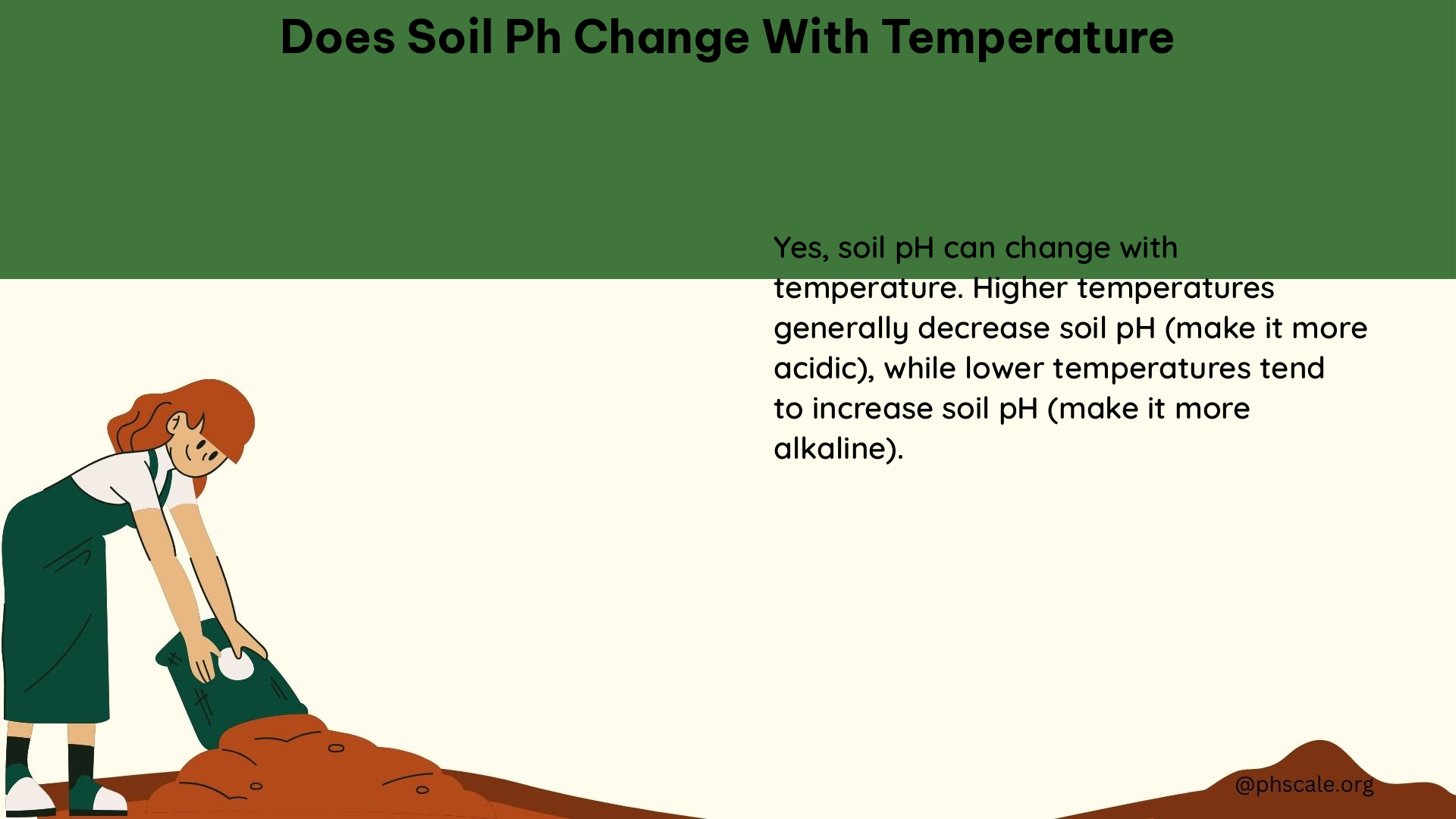Yes, soil pH can change with temperature. The relationship between soil pH and temperature is an important factor to consider in agricultural practices and soil management. Here’s a detailed look at how temperature affects soil pH:
The Relationship Between Temperature and Soil pH
Soil pH is inversely proportional to temperature. As the temperature increases, the pH of the soil typically decreases, making the soil more acidic. Conversely, a decrease in temperature can lead to a slight increase in soil pH.
Mechanism of pH Change
The mechanism behind this relationship is the effect of temperature on the ionization of water molecules in the soil. As the temperature rises, the molecular vibrations increase, leading to the formation of more hydrogen ions (H+). This increase in H+ concentration results in a lower pH, making the soil more acidic.
Soil Temperature Ranges and pH Fluctuations
The impact of temperature on soil pH can vary depending on the specific temperature range. For instance, at temperatures between 25°C and 39°C, soil pH can increase due to the denaturation of organic acids, which is more pronounced at higher temperatures.
Factors Influencing Soil pH and Temperature

Several factors can influence the relationship between soil pH and temperature, including:
Soil Biological Properties
Temperature affects various biological processes in the soil, such as microbial activity, nitrogen mineralization, and soil respiration. These processes can, in turn, influence soil pH. For example, increased microbial activity at higher temperatures can lead to increased nitrogen mineralization, which can affect soil pH.
Soil Composition and Buffering Capacity
The composition of the soil, including the presence of organic matter, clay minerals, and cation exchange capacity, can influence the soil’s buffering capacity. Soils with a higher buffering capacity are less susceptible to pH changes due to temperature fluctuations.
Climatic Conditions
Regional climatic conditions, such as precipitation patterns and seasonal temperature variations, can also impact the relationship between soil pH and temperature. Regions with more pronounced temperature changes may experience more significant pH fluctuations.
Practical Implications for Soil Management
Understanding the relationship between temperature and soil pH is crucial for effective agricultural practices and soil management. Some key considerations include:
Nutrient Availability
Temperature-induced changes in soil pH can impact the availability of essential nutrients for plant growth. Monitoring and adjusting soil pH based on temperature changes can help optimize nutrient uptake and plant health.
Crop Selection and Adaptation
Certain crops have specific pH preferences, and understanding the temperature-pH relationship can aid in selecting the most suitable crops for a given location and climate.
Soil Amendments and Liming
The application of soil amendments, such as lime, to adjust pH levels may need to be adjusted based on temperature fluctuations to maintain the desired pH range.
Measurement and Compensation
When measuring soil pH, it is essential to consider temperature simultaneously, as pH values can be affected by temperature. Many pH sensors have built-in automatic temperature compensators to account for this effect.
Conclusion
In conclusion, soil pH does change with temperature, with higher temperatures typically leading to lower pH levels and increased acidity. This relationship is crucial to understand for effective soil management and agricultural practices. By considering the impact of temperature on soil pH, farmers and soil scientists can make more informed decisions to optimize crop growth, nutrient availability, and overall soil health.
References:
- Guoju, X., Yongzhong, F., Guangpo, G., & Changchun, S. (2012). The Relationship Between Winter Temperature Rise and Soil pH. Air, Soil and Water Research, 5.
- USDA-NRCS. (2014). Inherent Factors Affecting Soil pH. UNL CropWatch.
- Atlas Scientific. (2023). Does Temperature Affect pH?
- ResearchGate. (2024). What is the effect of temperature on soil pH?
- MedCrave Online. (2018). Effects of soil temperature on some soil properties and plant growth.
